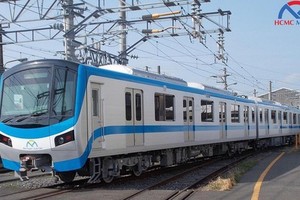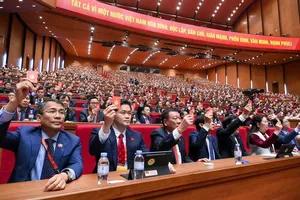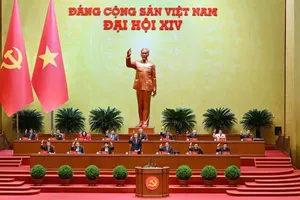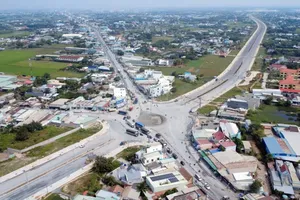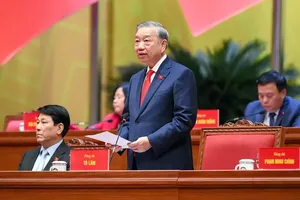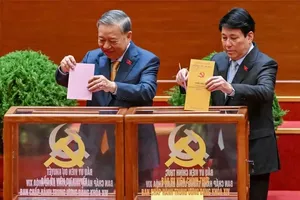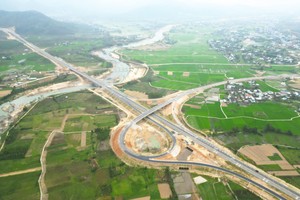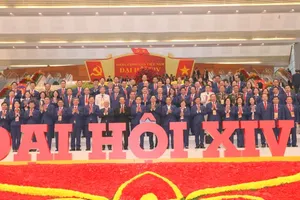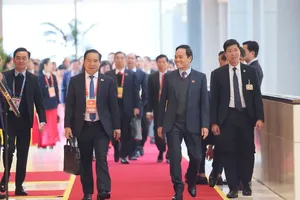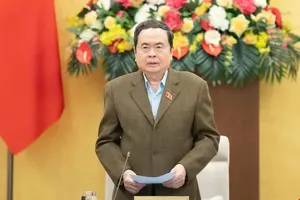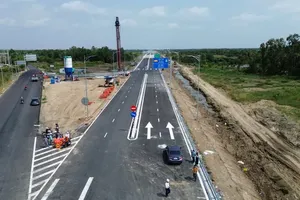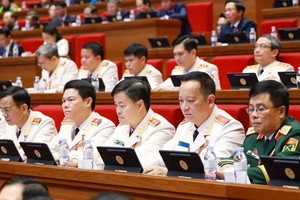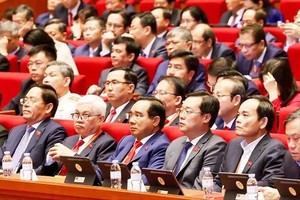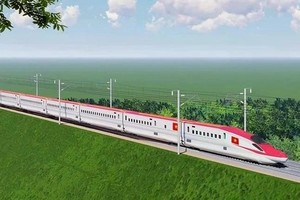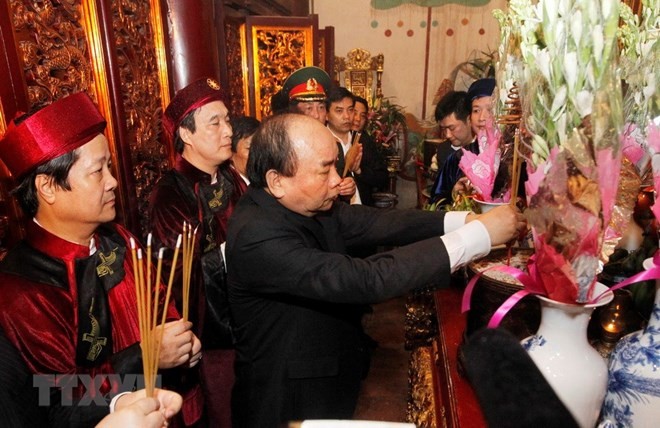
Prime Minister Nguyen Xuan Phuc, head of the Party Central Committee’s Economic Commission Nguyen Van Binh, representatives of ministries and agencies, and leaders of Phu Tho and Thai Nguyen, Quang Nam, Binh Duong and Kien Giang provinces, which joined hands to
organise
the event, offered incense to the national founders.
Chairman of the People’s Committee of Phu Tho province Bui Minh Chau delivered a eulogy praising the Kings for founding and protecting the nation, affirming that Lac Hong descendants will unite together, under the leadership of the Communist Party of Vietnam, to overcome difficulties and seize opportunities to build a prosperous and civilised nation, making contributions to peace and friendship in the region and the world as well.
PM Phuc and delegates laid wreaths and offered incense and flowers in tribute to the Hung Kings and other ancestors at the main temple.
They also offered incense at the tomb of the 6th Hung King and paid tribute to late President Ho Chi Minh and martyrs at the relief featuring the late leader’s talk with soldiers from the Tien Phong Vanguard Division stationed at the complex.
Following the incense-offering ceremony, millions of Vietnamese people across the country and abroad paid homage to the national founders at the temple complex.
The same day, provinces and cities nationwide held a wide range of activities in commemoration of the Hung Kings.
Ruling the country through 18 generations (2879–258 BC), the Hung Kings taught locals how to grow wet rice. They chose Nghia Linh Mountain, the highest in the region, to perform rituals devoted to rice and sun deities to pray for lush crops.
The worshipping rituals of the Hung Kings are closely related to the ancestral worship traditions of most Vietnamese families, an important part of people's spiritual life. It was
recognised
as UNESCO Intangible Cultural Heritage of Humanity in 2012.
Viet Tri city, which was the first capital of Vietnam under the Van Lang administration, still owns many archaeological and historical relics related to the Hung Kings’ reign.
Chairman of the People’s Committee of Phu Tho province Bui Minh Chau delivered a eulogy praising the Kings for founding and protecting the nation, affirming that Lac Hong descendants will unite together, under the leadership of the Communist Party of Vietnam, to overcome difficulties and seize opportunities to build a prosperous and civilised nation, making contributions to peace and friendship in the region and the world as well.
PM Phuc and delegates laid wreaths and offered incense and flowers in tribute to the Hung Kings and other ancestors at the main temple.
They also offered incense at the tomb of the 6th Hung King and paid tribute to late President Ho Chi Minh and martyrs at the relief featuring the late leader’s talk with soldiers from the Tien Phong Vanguard Division stationed at the complex.
Following the incense-offering ceremony, millions of Vietnamese people across the country and abroad paid homage to the national founders at the temple complex.
The same day, provinces and cities nationwide held a wide range of activities in commemoration of the Hung Kings.
Ruling the country through 18 generations (2879–258 BC), the Hung Kings taught locals how to grow wet rice. They chose Nghia Linh Mountain, the highest in the region, to perform rituals devoted to rice and sun deities to pray for lush crops.
The worshipping rituals of the Hung Kings are closely related to the ancestral worship traditions of most Vietnamese families, an important part of people's spiritual life. It was
Viet Tri city, which was the first capital of Vietnam under the Van Lang administration, still owns many archaeological and historical relics related to the Hung Kings’ reign.
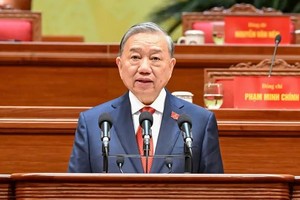
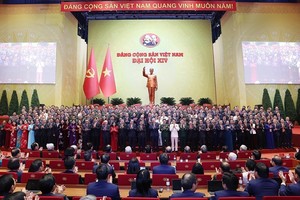
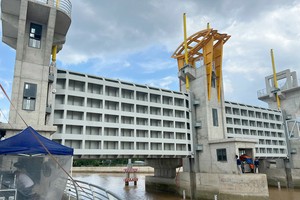
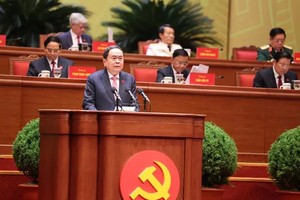
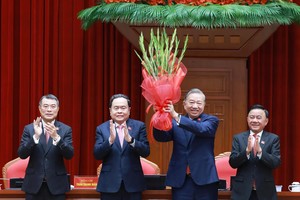
)
